How Long Do Poodles Live? Lifespan Guide
Poodles are intelligent and loyal dogs that quickly become beloved members of the family.
Although various factors affect their life expectancy, Poodles live between 12-15 years. Standard Poodles tend to have a shorter lifespan, while smaller poodles tend to live for longer.
- A Standard Poodle lives an average of 12 years, with some living to 18.
- Miniature and Toy Poodles live an average of 14.5 years, with some living to 19.

There are several factors that can affect a Poodle’s life expectancy, including genetics, health concerns, and general care.
The excellent lifespan may be due in part due to genetics, as well as being bred and raised by responsible owners.
Caring for Your Poodle for Maximum Lifespan
Although some Poodles may inherit genetic health concerns, how you care for them also impacts their lifespan. Here is general advice on how owners get their Poodles to live longer.
Diet
Research shows that feeding dogs the right amount of food and a nutrient-dense diet can positively impact their longevity. Poodles have specific dietary needs, and a proper diet will help reduce the risk of Poodles developing diseases or illnesses later in life.
Since poodles are fairly active dogs, they’ll benefit from a high-protein diet. Make sure to look for recipes with high-quality ingredients and natural meat protein. Chicken breast, ground turkey, and salmon are all valid natural meat proteins. Avoid foods with meal meals (chicken meal, turkey meal, etc.) because what’s inside them is unclear.
To prevent obesity, avoid food and kibble with carbohydrate fillers. Carbohydrate fillers are low-nutrient foods, such as corn, wheat, and soy, that low-quality dog food uses to increase their kibble volume. (See the best quality Poodle dry food here)
Since Poodles are susceptible to hip and joint issues, consult your veterinarian to find a good hip and joint dog food formula or supplements.
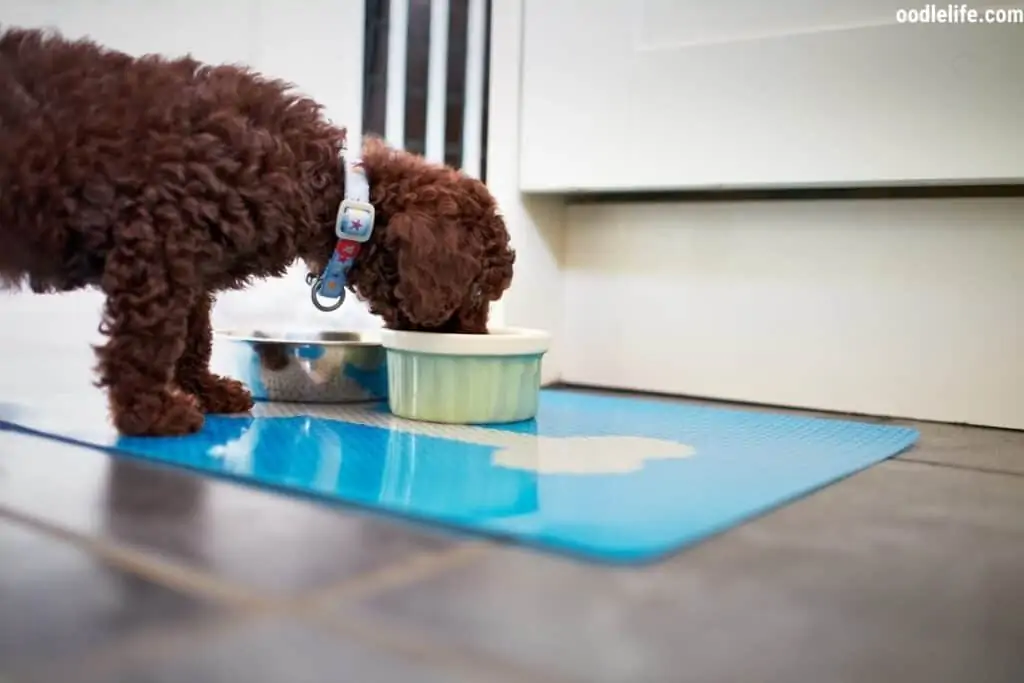
Physical Exercise for Poodles
Poodles, including Toy Poodles, are very active dogs that love to play. Most Poodles need about an hour of exercise a day. They’ll enjoy long walks or playing fetch or tug. These dogs will also benefit from running around and letting loose in an enclosed yard.
Since Poodles are relatively easy to train, they may also take to agility training. Agility is an excellent way for them to burn energy as they zoom through a course.
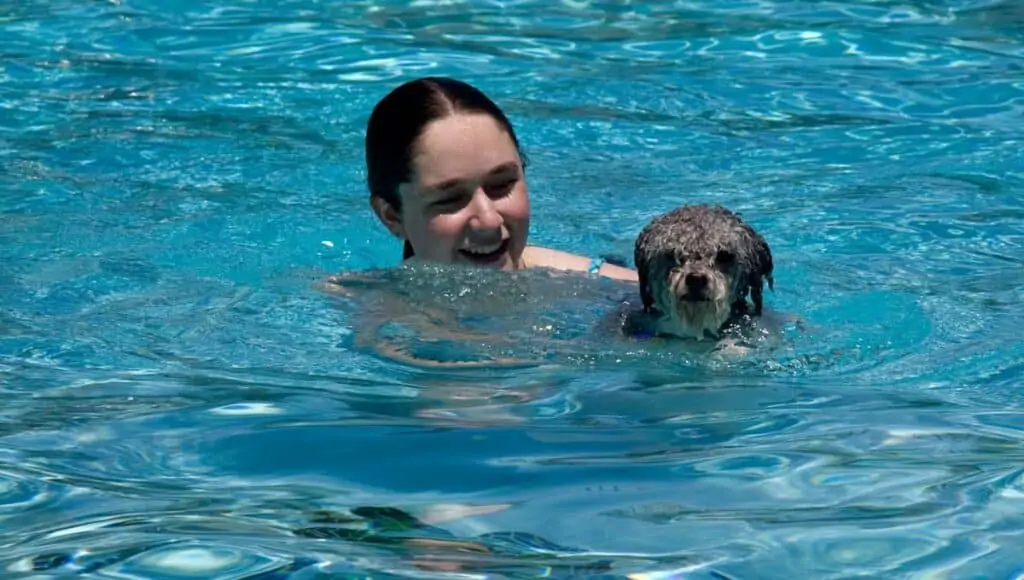
Mental Stimulation
Poodles are very intelligent dogs that love challenges and learning. Therefore, they need a lot of mental stimulation, such as learning new tricks, having jobs around the house, and playing with interactive puzzle toys.
Poodles that don’t receive an adequate amount of mental stimulation will become bored, which usually leads to developing destructive behaviors, such as destroying furniture. They can also start to feel a lot of stress, anxiety, or depression. All these things affect a Poodle’s quality of life, which can lower life expectancy.

Grooming
Since Poodles have curly hair, they have more grooming needs than other dogs. They’ll require multiple brushing sessions a week. Tangled hair can lead to matting. Matts can be painful as they tug on the skin, and they can also cause skin infections.
Poodles also have floppy ears, so they need regular ear cleaning. Moist or wet ears will ultimately lead to ear infections.

Poodle Life Stages
Poodles experience life stages at different times, depending on their size.
Puppyhood
Toy poodles’ puppyhood typically lasts for about one year. Miniature Poodles experience puppyhood for about 18 months, and puppyhood for Standard Poodles lasts for approximately two years.
During puppyhood, Poodles will have a lot of energy and will be very curious and playful. They’ll also undergo teething, so the house has to be “puppy-proofed” to keep your Poodle puppy from chewing or ingesting hazardous items.

Adulthood
Adulthood for Poodles lasts for about seven to eight years. Adult Poodles won’t have as much energy as puppy counterparts, but they still need adequate amounts of exercise. Older adults may benefit from taking vitamins and supplements to support healthy bones and joints.

Seniors
Most Poodles reach the senior stage at about seven to eight years. Their movements will slow down, and they may start to sleep more. They may also experience vision and hearing changes. It’s especially important at this stage to stay on top of monitoring your dog’s health and behavior to keep an eye out for any illnesses or genetic conditions that might develop.

Poodle Genetic Health Concerns
There are some genetic health conditions that Poodles may inherit. Knowledge of genetic health concerns can help owners look out for signs and be as proactive as they can be with their Poodle’s medical care.
Addison’s Disease
Addison’s disease, or hypoadrenocorticism, is a condition that affects the adrenal gland. Poodles with Addison’s disease have adrenal glands that can’t produce a sufficient amount of adrenal hormones. During the beginning stages of the disease, Poodles may experience the following symptoms:
- Vomiting
- Loss of appetite
- Lethargy
- Increased thirst
- Increased urination
Severe cases of Addison’s disease can lead to an Addisonian Crisis. When a Poodle undergoes an Addisonian Crisis, it can have severe vomiting and diarrhea and even collapse. This is an emergency situation that requires immediate medical attention.
Fortunately, Addison’s disease is treatable. Most Poodles become stabilized following a regimen of desoxycorticosterone pivalate (DOCP).
Cushing’s Disease
A Poodle develops Cushing’s disease when the endocrine system overproduces cortisol. Cushing’s disease has a few causes, but the most common is a benign tumor growing in the pituitary gland.
It’s mostly older Poodles that get diagnosed with Cushing’s disease, but it can sometimes develop in younger dogs. Here are some signs of the disease:
- Increased hunger and thirst
- Swollen abdomen
- Hair loss
- Recurring infections
- Lack of energy
- Insomnia
- Muscle weakness
- Seizures
- Fat pads on neck and shoulders
Currently, there isn’t a cure for Cushing’s disease. However, treatment is available, and most dogs can live a long life if the tumor remains small. Sometimes, dogs will have malignant tumors, and this will significantly reduce their life expectancy.
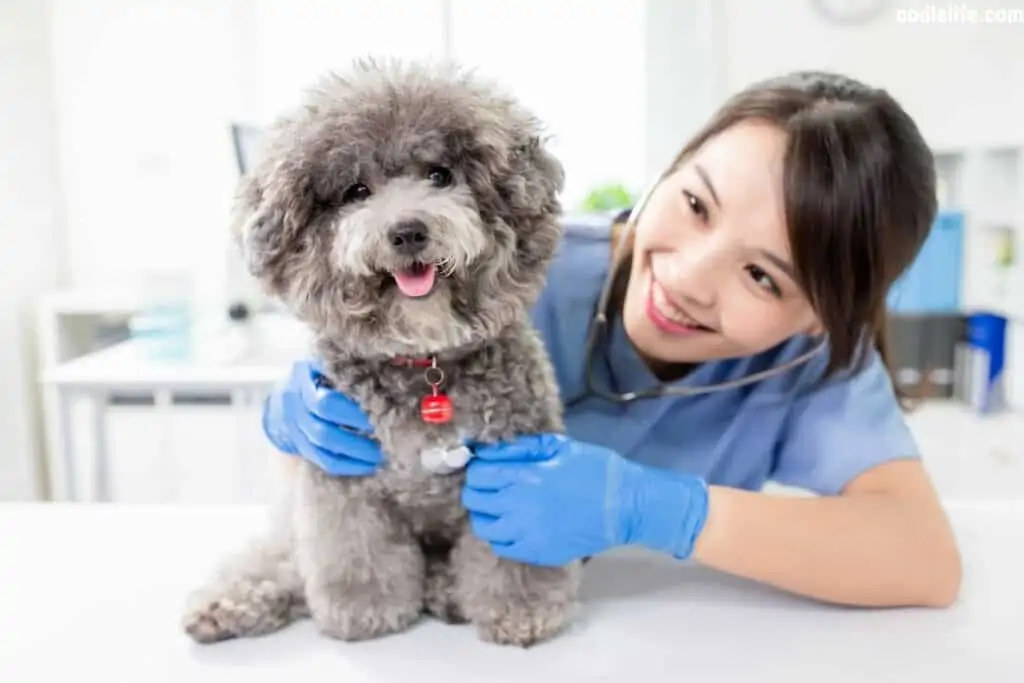
Hip Dysplasia
Hip dysplasia is when there’s a misalignment of the ball and socket of the hip joint. It often occurs with larger dog breeds, so a Standard Poodle is more likely to have it. Owners can keep an eye out for the following signs and symptoms:
- Decreased range of motion
- Difficulty climbing stairs
- Loss of muscle mass in the thigh
- Stiffness
- Limping
Dogs can feel mild to severe pain. Milder forms of hip dysplasia can get addressed with lifestyle changes, such as diet and nutrition, and dogs can live with a generally favorable prognosis. More severe conditions may require physical therapy or surgery, and in the most advanced cases, dog owners will have to consider euthanization.
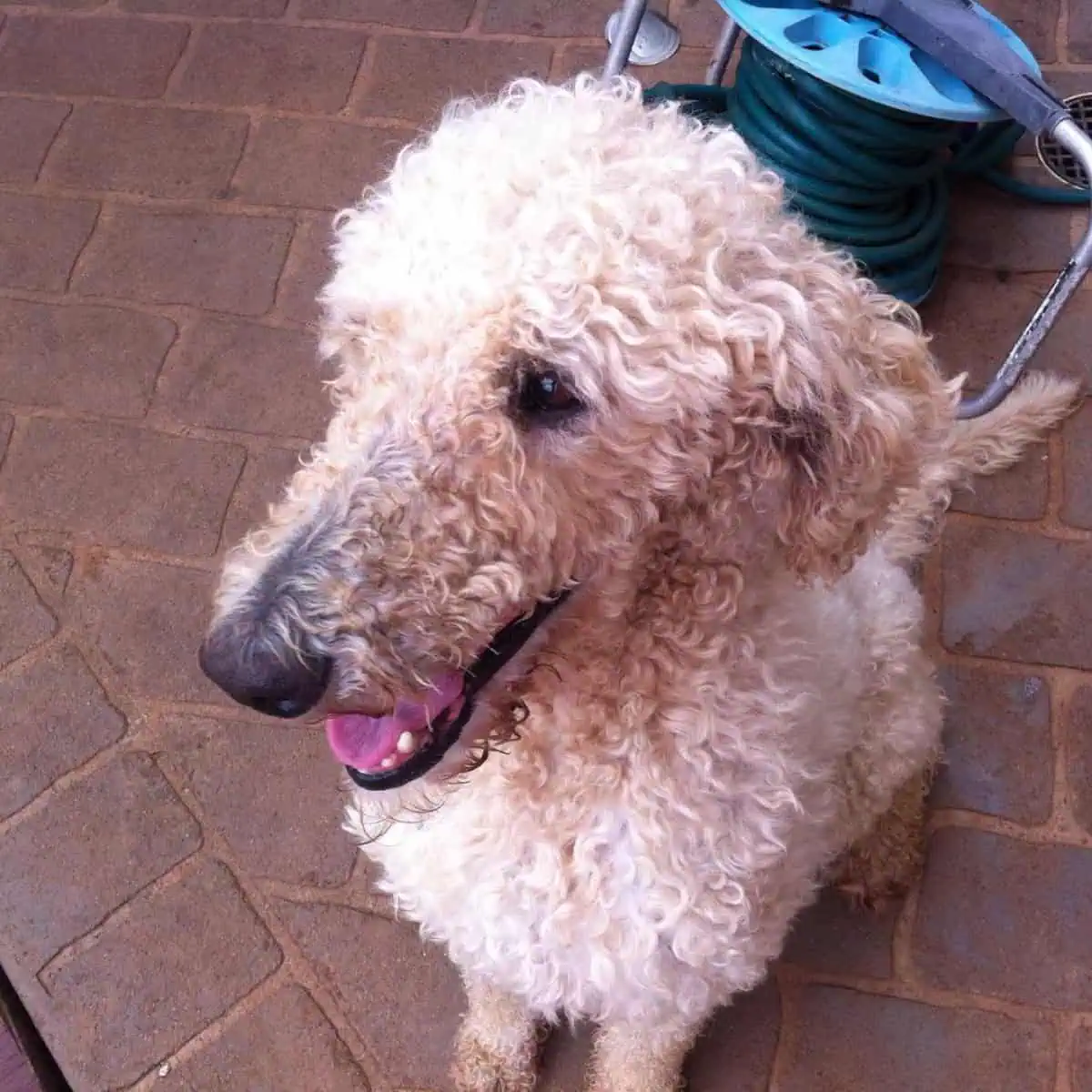
Legg-Calve-Perthes Disease
Legg-Calve-Perthes disease is when the ball of the hip’s ball-and-socket joint suddenly deteriorates. It’s more common to see it develop in smaller dogs and toy breeds.
Dogs will experience some of these symptoms when they have Legg-Calve-Perthes disease:
- Limping
- Stiffness in rear legs
- Restlessness
- Lethargy
- Crepitus
- Pain in the hip
Veterinarians often treat mild Legg-Calve-Perthes disease with pain medication and anti-inflammatory drugs. However, most dogs end up getting surgery where the ball gets removed. Then they undergo physical therapy to make sure that they rebuild muscles in their legs.

Idiopathic Epilepsy
Idiopathic epilepsy causes mild to severe seizures in dogs. Dogs that experience seizures may display some of these behaviors:
- Shaking
- Staring aimlessly
- Dazed
- Licking lips
- Involuntary movements
Seizures can last from several seconds to a few minutes. The most important thing that dog owners can do for their dogs is place them in a safe environment so they don’t hurt or injure themselves during an episode.
Most seizures occur due to underlying causes, so it’s important to consult with a veterinarian to find the root cause. Although seizures typically have a good prognosis, the Poodle’s lifespan may get affected by other, more severe conditions that trigger them.
IF you are looking for other dogs with long lfiespans that do not shed, consider
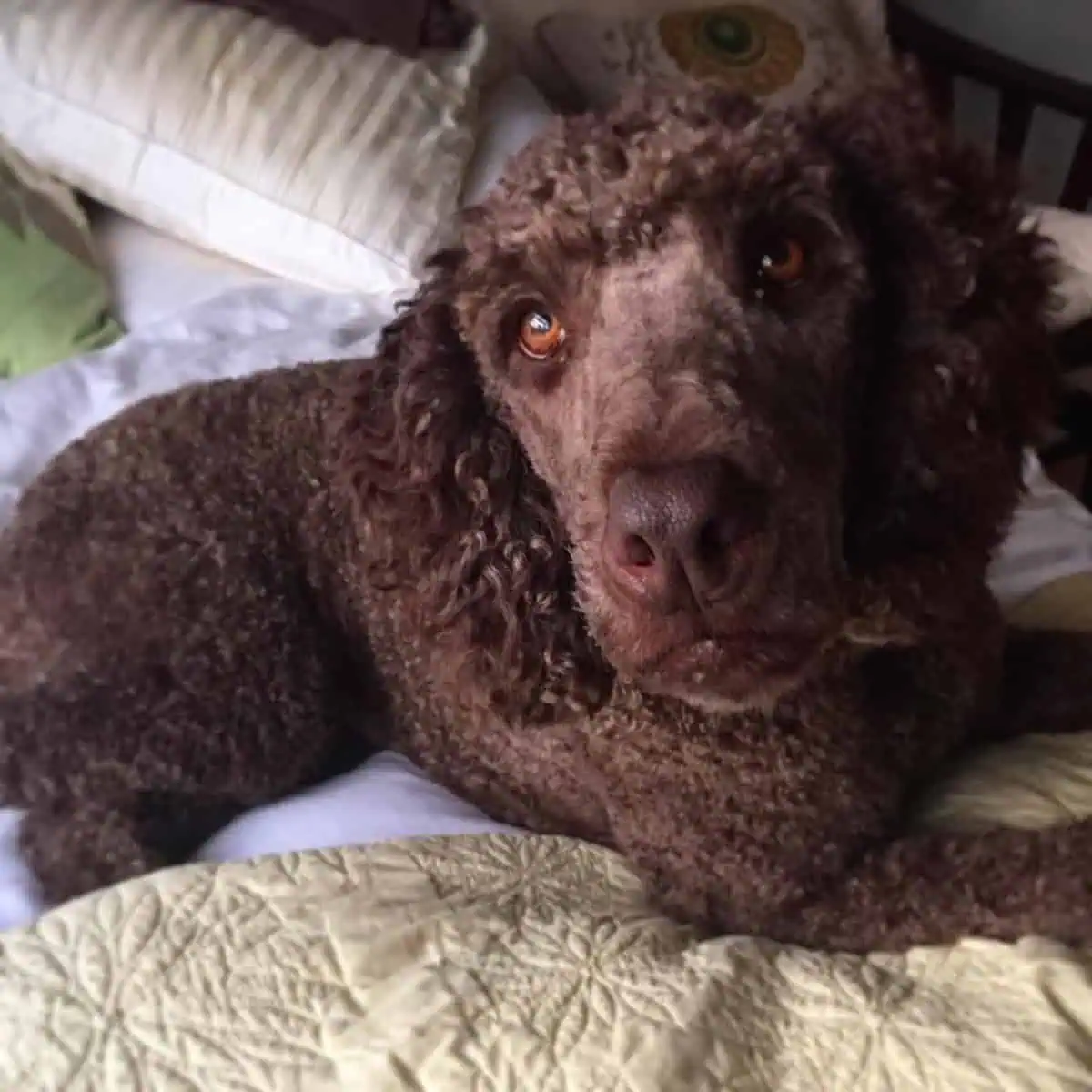
Conclusion
Poodles have a lifespan of about 12-15 years, and the way you care for your Poodle will significantly impact life expectancy. A healthy diet, adequate physical and mental exercise, and proper grooming are all elements that increase your Poodle’s lifespan. Not only that, they’ll live happier lives, and you’ll gain a fun and loyal companion in your own life.